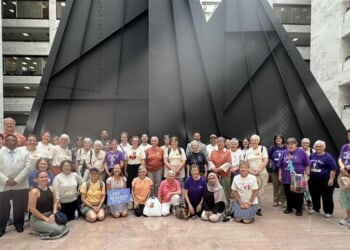St. Louis, Mo., May 20, 2025 /
12:32 pm
Republican lawmakers in Missouri approved a new referendum last week that, if passed by voters, could reinstate many of the state’s pro-life laws, largely undoing a previous statewide referendum that expanded abortion rights a few months ago.
The ballot measure, HJR73, would ask voters if they want to allow abortion only in the case of a medical emergency, fetal abnormality, or rape or incest. It also would ban public funding for any abortions not done because of medical emergency or rape or incest.
In addition, the referendum would allow the state General Assembly to enact laws that regulate the provision of abortions, abortion facilities, and abortion providers to ensure the health and safety of pregnant mothers.
The measure would also constitutionally ban hormones, puberty blockers, and surgeries for “gender transition” for minors. Missouri already bans those procedures for minors, but that restriction, first passed in 2023, is set to expire in August 2027.
The measure is expected to appear before voters in November 2026, or sooner if Republican Gov. Mike Kehoe, who is Catholic, calls a special election.
Missourians had last November narrowly voted to overturn the state’s near-ban on abortion and enshrine a provision guaranteeing “reproductive freedom” in the state constitution, coming into effect Dec. 6, 2024.
Missouri law had previously extended protection to unborn babies throughout all of pregnancy with the only exception being cases of “medical emergency.”
Although the 2024 amendment language mentions that laws could be passed to restrict abortion past the point of “fetal viability,” the amendment simultaneously prohibits any interference with an abortion that a doctor determines is necessary to “protect the life or physical or mental health” of the mother.
Missouri lawmakers had in recent years passed numerous laws designed to protect patients and limit the abortion industry’s influence, including 2017 regulations requiring that abortion doctors have surgical and admitting privileges to nearby hospitals; that abortion clinics must be licensed with the state; and that clinics must meet hospital-like standards for outpatient surgery.
Soon after the 2024 amendment took effect, Planned Parenthood filed a lawsuit challenging numerous pro-life protections in Missouri, including the state’s 72-hour waiting period for abortions; the state’s ban on abortions done specifically for reasons of the race, sex, or a Down syndrome diagnosis of the baby; the state’s ban on “telemedicine” abortions; and the state’s requirement that only licensed physicians may perform abortions.
The Missouri Catholic Conference (MCC), which advocates policy in the state on behalf of the state’s bishops, described the upcoming referendum as an “opportunity to add health and safety protections for mothers and their preborn children back into the state constitution.”
The MCC had previously expressed support for HJR73, urging support for “the effort to reduce abortions in the state of Missouri and to create a culture of life and compassion and limit the effects of Amendment 3.”
Missouri was one of the first states to fully ban abortion after the fall of Roe v. Wade in 2022. Following the 2024 vote, Missouri and six other states expanded legal protection for abortion, while voters in Florida, Nebraska, and South Dakota voted down major pro-abortion proposals the same night.


















